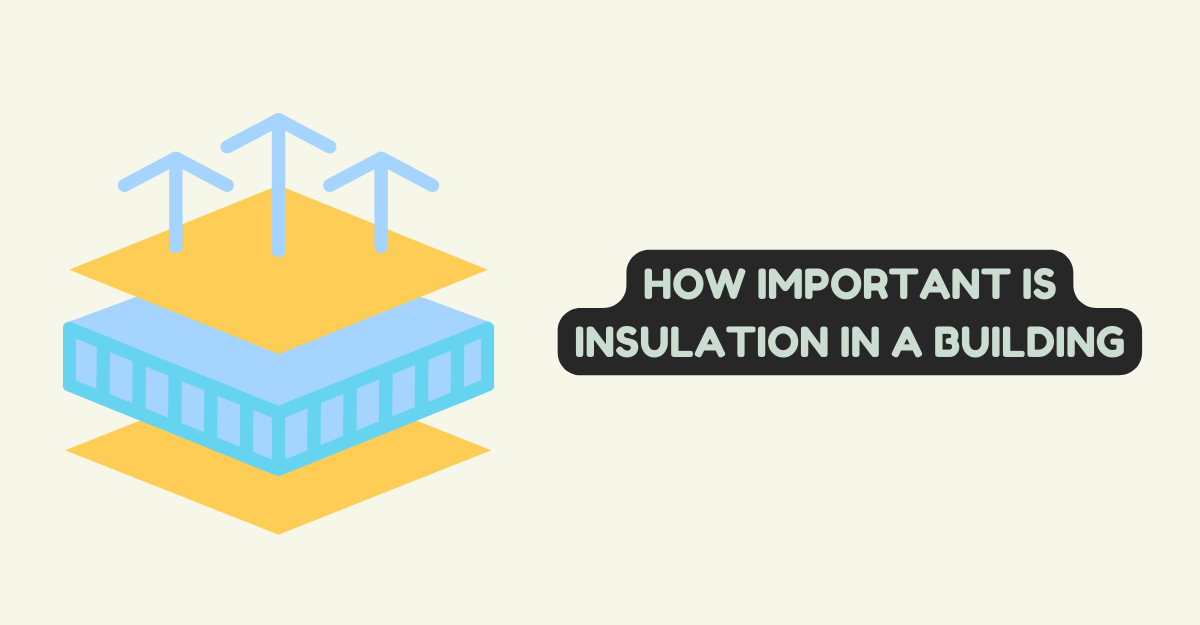
Insulation plays a crucial role in the construction and maintenance of buildings, impacting energy efficiency, comfort, and environmental sustainability.
Understanding Insulation and Its Role in Buildings
Insulation, in the context of building construction, refers to materials used to reduce the rate of heat transfer. This thermal barrier is essential for maintaining a comfortable interior climate, irrespective of the external weather conditions. This barrier works for both hot and cold weather, for example San Antonio commercial roofing builders recommend particular care in this area as it provides benefits throughout the entire year.
Energy Efficiency and Cost Savings
The primary benefit of insulation is its ability to improve a building’s energy efficiency. Proper insulation reduces the need for heating and cooling systems to work overtime, leading to significant energy savings. According to the U.S. Department of Energy, proper insulation can save 10 to 50 percent on a home’s heating and cooling bills. This not only benefits the building owner in terms of reduced utility costs but also contributes to energy conservation on a broader scale.
Enhanced Comfort
Comfort is a key aspect of any living or working space, and insulation directly impacts this. Insulation keeps a building warm during the winter and cool during the summer by minimizing the heat exchange between the inside of the building and the outside environment. This steady indoor temperature contributes to a more comfortable and habitable environment.
Environmental Impact
Insulation’s role in reducing energy consumption has a direct positive impact on the environment. Buildings are a significant source of energy use globally, and by reducing this demand through effective insulation, we contribute to lower greenhouse gas emissions. This is crucial in the fight against climate change and in promoting sustainable living practices.
Soundproofing
Insulation also plays a significant role in soundproofing buildings. Insulating materials can absorb sounds, reducing the transmission of noise from outside and between different rooms within a building. This is particularly important in urban areas or for buildings near airports or highways.
Moisture Control
Proper insulation can prevent the buildup of moisture inside a building. When warm air inside a building comes in contact with cold surfaces, condensation can occur, leading to mold and mildew problems. Insulation helps in maintaining a consistent temperature on surfaces, reducing the risk of condensation.
Types of Insulation Materials
There are various types of insulation materials, each with its unique properties and applications. Common types include fiberglass, cellulose, foam board, and spray foam. The choice of insulation material depends on factors like climate, building design, and budget.
Regulatory Compliance
Building codes in many regions mandate specific insulation standards. These codes are designed to ensure that buildings meet minimum requirements for energy efficiency and safety. Compliance with these standards is not only a legal requirement but also a best practice in sustainable building design.
Long-term Value
While the initial investment in quality insulation can be significant, the long-term benefits outweigh the costs. Buildings with good insulation have a higher market value, are more attractive to buyers and tenants, and have lower operational costs. This makes insulation a wise investment for any property owner.
Challenges and Considerations
While the importance of insulation is clear, it’s also crucial to address challenges such as proper installation, the potential for air leaks, and the selection of suitable materials for specific climates. Inadequate or improperly installed insulation can lead to issues like thermal bridges, where heat escapes, defeating the purpose of insulation.
Innovation and Future Trends
The future of insulation in buildings is bright, with ongoing innovations in materials and techniques. Eco-friendly options like sheep’s wool and recycled materials are gaining popularity, offering sustainable alternatives to traditional insulation materials. Additionally, smart insulation technologies that adapt to changing temperatures and conditions are on the horizon.
Conclusion
In conclusion, insulation is a fundamental aspect of modern building design, offering a multitude of benefits ranging from energy efficiency and comfort to environmental sustainability. As we move towards a more energy-conscious and environmentally friendly future, the role of insulation in buildings will become increasingly important, driving innovation and new practices in the construction industry. Whether you’re a builder, a homeowner, or a tenant, understanding and valuing insulation is key to achieving a comfortable, cost-effective, and sustainable living environment.